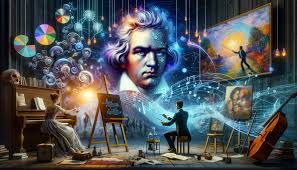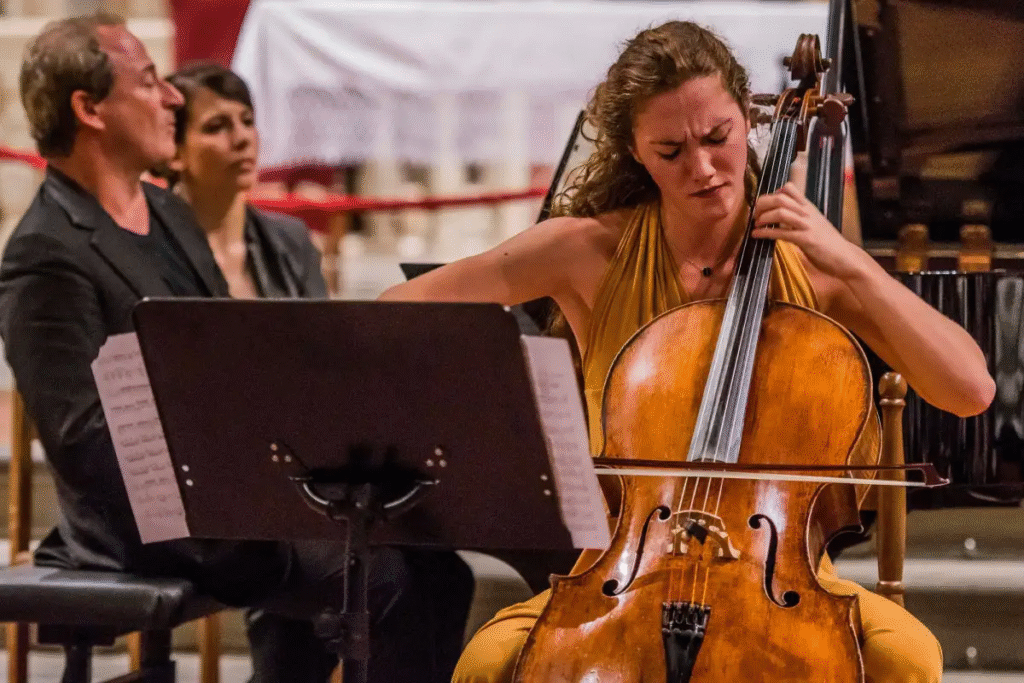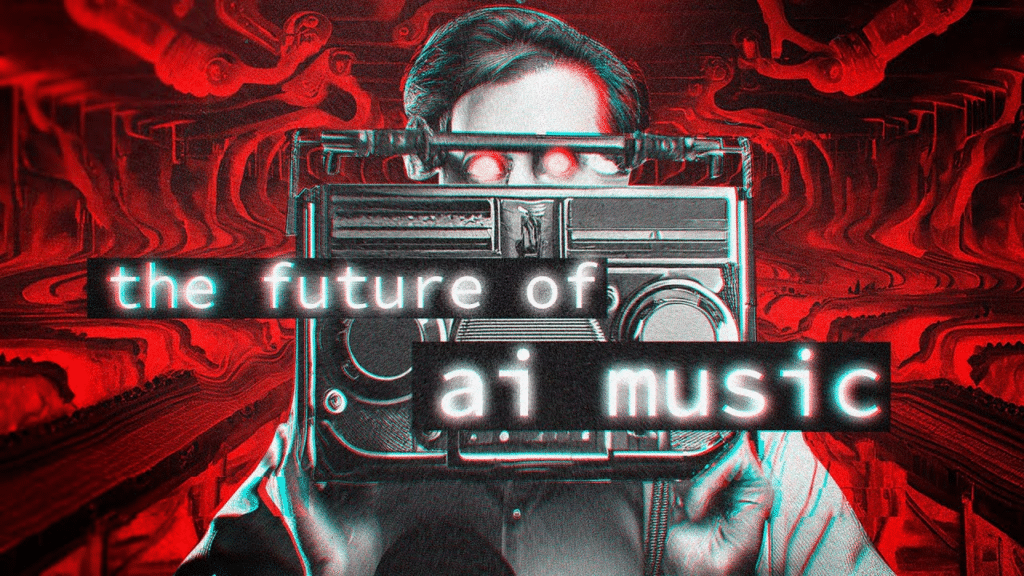
The world of music beethoven has always been dominated by human genius—from Mozart’s symphonies to Beethoven’s sonatas. But now, artificial intelligence is stepping onto the stage, composing original pieces that blur the line between man and machine.
Could AI ever surpass the greatest composers in history? Can algorithms capture the emotion, creativity, and brilliance of Beethoven, or is human artistry irreplaceable?
In this deep dive, we explore:
✔ How AI composes music (the tech behind it)
✔ Famous AI-generated compositions (and how they compare to classics)
✔ Can AI really “understand” emotion in music?
✔ Will AI replace human composers?
Let’s see if machines can outshine the masters.

AI music generators use deep learning models trained on vast datasets of existing music. The most common techniques include:
**1. Recurrent Neural Networks (RNNs) & LSTMs
- Analyze sequences in music (melodies, harmonies)
- Predict the next note based on patterns
**2. Transformers (Like OpenAI’s MuseNet)
- Process large-scale musical structures
- Generate complex compositions in multiple styles
**3. Generative Adversarial Networks (GANs)
- Two AIs compete: one creates, the other critiques
- Refines output to sound more “human-like“
**4. Symbolic AI (Like Google’s Magenta)
- Works with MIDI files (not raw audio)
- Focuses on melody and structure

**🎵 “Daddy’s Car” (2016) – FlowMachines
- Trained on The Beatles’ style
- Sounds catchy but formulaic
- Lacks the lyrical depth of Lennon-McCartney
Verdict: Fun, but not groundbreaking.
**🎵 “Break Free” (Taryn Southern feat. AI)
- First pop song co-written by AI (Amper Music)
- Upbeat, radio-friendly, but generic
Verdict: Decent, but forgettable.
**🎵 Beethoven’s “Unfinished 10th Symphony” – Completed by AI (2021)
- AI analyzed Beethoven’s sketches and style
- Critics called it “impressive but safe”
- Missing the bold unpredictability of real Beethoven
Verdict: A noble effort, but not a masterpiece.
**🎵 “Hello World!” – SKYGGE (AI-Generated Album)
- Uses FlowMachines for full AI-assisted tracks
- Some tracks feel fresh, others soulless
Verdict: Shows potential, but not yet transcendent.

This is the biggest challenge for AI composers.
✅ What AI Does Well:
✔ Mimics styles (Baroque, jazz, EDM)
✔ Creates pleasant, structured melodies
✔ Generates background music efficiently
❌ Where AI Falls Short:
✖ Lacks true emotional intent (no lived experience)
✖ Struggles with originality (repeats patterns)
✖ No “spark” of genius (unlike Beethoven’s surprises)
Human vs. AI: A Side-by-Side Test
- Play an AI-generated “Mozart-style” piece vs. real Mozart.
- Listeners almost always prefer the human composer.
- Why? Subtle imperfections, emotional phrasing, storytelling.

The Optimist’s View: AI as a Tool
- Assists musicians (suggests chords, melodies)
- Speeds up production (film scores, game music)
- Democratizes music creation (anyone can compose)
The Pessimist’s View: Threat to Artistry
- Generic, mass-produced music floods the market
- Human composers undervalued
- Loss of “soul” in music
Reality? A Middle Ground
AI won’t replace Beethoven… but it might collaborate with the next Mozart.

What’s coming next?
🚀 AI that learns your personal taste (custom compositions)
🎤 AI-generated vocals indistinguishable from humans
🎮 Dynamic video game scores that adapt in real-time
Final Verdict: Can AI Beat Beethoven?
Not yet. While AI can imitate, it can’t innovate like the greats.
Beethoven’s genius came from struggle, passion, and rebellion—things a machine can’t replicate.
But one day? Maybe. Until then, AI is best as a co-pilot, not a maestro.
What Do You Think?
- Would you listen to an AI-composed symphony?
- Could AI ever create a true masterpiece?
Comment below! 🎶 #AIMusic #BeethovenVsAI
Leave a Reply